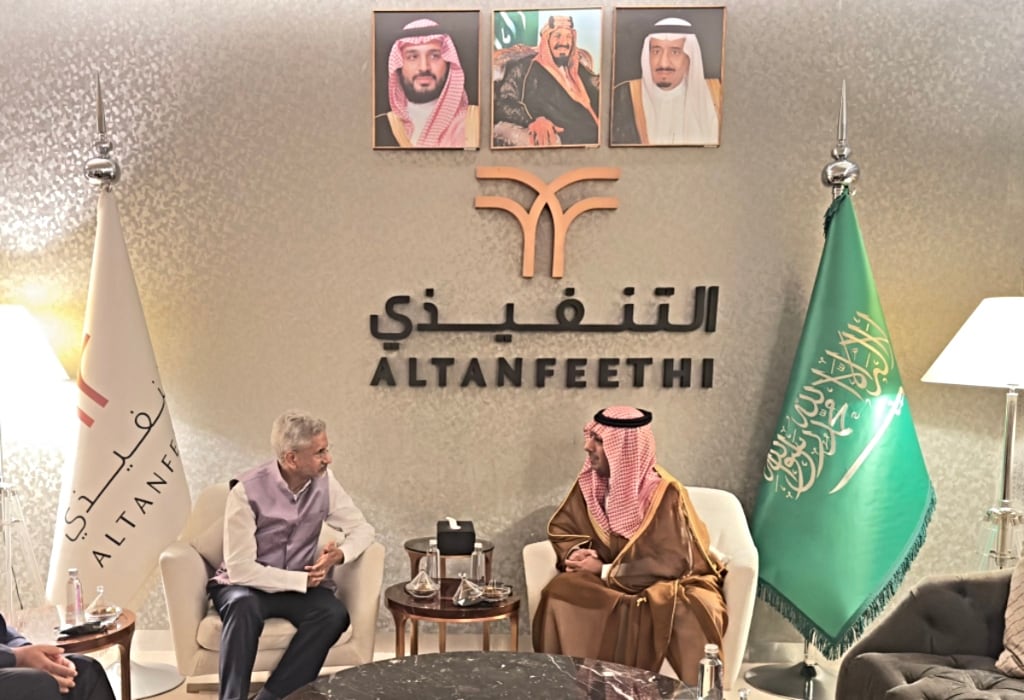At the first-ever India-GCC Joint Ministerial Meeting for Strategic Dialogue, India’s External Affairs Minister (EAM) S Jaishankar spotlighted the critical role of energy and food security in shaping future cooperation between India and the Gulf Cooperation Council (GCC). This meeting marked a significant step in expanding the relationship between two regions that have been deeply interconnected through trade, energy, and shared cultural bonds.
Energy Security: A Pillar of Partnership
Addressing the strategic importance of energy, Jaishankar pointed out that the GCC, which comprises some of the world’s largest oil and gas producers, plays a central role in ensuring global energy stability. India, as one of the fastest-growing economies, is set to become a major driver of global energy demand in the coming years. By enhancing collaboration in this area, India and the GCC can not only stabilize energy markets but also spur innovation in the sector.
“India’s energy demands are increasing rapidly, and much of our future requirements will come from this region. By working together, we can ensure greater energy security for both India and the global markets,” said Jaishankar during the meeting.
Expanding Trade Ties: A Vision for Mutual Prosperity
The India-GCC partnership is not just limited to energy; it extends into the realms of trade and economic cooperation. Bilateral trade between India and the GCC has expanded significantly over the years, with both sides recognizing the potential for further growth. Trade between India and the GCC now includes a variety of sectors, from goods to services, fueling job creation and economic growth in both regions.
The minister emphasized that the future of India-GCC relations will depend on investing in each other’s economies, focusing on long-term prosperity rather than short-term gains. He urged both sides to explore new avenues in renewable energy, technology, and innovation to ensure sustained growth.
“Trade between India and the GCC has grown in diversity and scope, and we must continue to build on this progress by exploring new areas of collaboration that can support the prosperity of both regions,” he stated.
Food Security: A Growing Priority
Another key topic of the dialogue was food security. With the GCC countries relying heavily on imports for their food supply, and India being one of the largest agricultural producers, this is an area ripe for further collaboration. India can play a pivotal role in ensuring the GCC’s food security by providing reliable agricultural exports, while also benefiting from technology transfers and investments from the GCC in agriculture-related infrastructure.
As global challenges like climate change and disruptions in the supply chain increasingly affect food production and distribution, the two regions can jointly develop strategies to ensure a stable food supply. This mutual dependence is becoming more pronounced, particularly in a world facing uncertainties driven by environmental and geopolitical factors.
Strategic Importance of the Partnership
The relationship between India and the GCC is not just transactional. It is built on trust, mutual respect, and a shared vision of progress in a multipolar world. Both regions are confronted with a rapidly changing global landscape, marked by shifts in geopolitics, technological advancements, and the growing need for sustainability. Strengthening ties between India and the GCC is essential to meeting these global challenges head-on.
He highlighted the broader implications of the India-GCC partnership, stating, “As the world evolves, our relationship is set to grow, not just in traditional areas but in new sectors that will define the future of global progress.”

